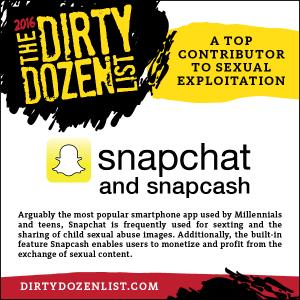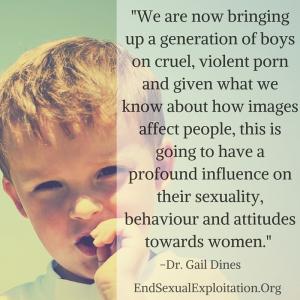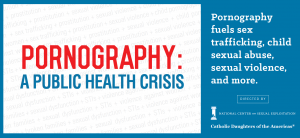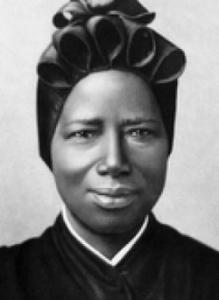No corporation should profit from or facilitate sexual exploitation. That’s the core belief behind the Dirty Dozen list, an activism tool for those of us who want a voice against pornography and its ramifications in our society.
Unfortunately, many well-established brands, companies, and organizations in America are profiting from sexual exploitation right now. Since 2013, the National Center on Sexual Exploitation has published an annual Dirty Dozen list to name and shame the mainstream players in America that perpetuate sexual exploitation—whether that be through pornography, prostitution, sexual objectification, sexual violence and/or sex trafficking.
It’s well known and established that pornography fuels sex trafficking and sex crimes, and is now considered one of the primary factors in many divorces each year.
“Our Dirty Dozen List gets results. It has instigated changes at institutions like Google, the Department of Defense, and Hilton Worldwide, which is why we continue this impactful initiative year after year,”said Haley Halverson, VP of Advocay and Outreach at the National Center on Sexual Exploitation. “We are talking about mainstream corporations and services like Apple’s iBooks, Google’s YouTube, Roku and Twitter—which the American people use and interact with every day on a mass scale— and which simultaneously promote or profit from messages of incest, the dehumanization of women, sexual violence and even racism and child exploitation.”
People can participate by taking easy online actions, from sending emails to sharing social media messages. You can help spread the word by posting on social media and emailing the Dirty Dozen list around.

Below is the complete 2018 Dirty Dozen List with the rationale for selecting each member:
Amazon: Amazon. com, the world’s largest online retailer, facilitates the sale of materials that sexualize children and normalize the dehumanization and sexual commodification of women. Such products include eroticized child nudity photography books, sex dolls (many with childlike features,) and books with “how to” instructions for sex trafficking. Amazon Prime also produces original content that normalizes gratuitous sexual violence against women and softcore pornography as mainstream entertainment.
Backpage.com: Backpage. com brings the seedy street corners of America’s red-light districts to home computers. As a classified advertising website known as “the hub” for prostitution advertising, Backpage.com serves as a virtual auction block where sex buyers can shop for human beings for sex from the privacy of their home, office, hotel room, or cell phone. Many of those bought and sold via the website are sexually trafficked women and children. The website facilitates this activity by allegedly editing ads to conceal the illegality of underlying criminal activity and remains immune from prosecution due to the Communications Decency Act Section 230.
Comcast: Comcast distributes and profits from sexual exploitation. One way it does this is by providing access to hardcore pornography via its Xfinity television packages. In 2017, Comcast informed NCOSE that it would take measures to hide and deceptively sanitize film descriptions and titles – but Comcast is still defending and profiting off of teen, incest, and racist-themed pornography.
EBSCO: EBSCO Information Services offers online library resources to public and private schools (K-12), public libraries, and more. In its advertising for schools, it promises “fast access to curriculum-appropriate content.” However, its databases provide easy access to hardcore pornography sites and extremely graphic sexual content. In 2017, EBSCO removed some content from their K-12 databases, however there remains an incredible amount of easily accessible sexually explicit material bypassing school filters mixed in with educational material.
HBO: Home Box Office Inc. (HBO) is a premium cable and satellite television network owned by Time Warner. Since the early 2000s HBO has produced a string of original programs that incorporate graphic sex scenes. Examples include G String Divas, CatHouse: The Series, and Hung. Graphic depictions of sex, rape, and brutal sexual violence are also commonplace in The Deuce, Game of Thrones and Westworld. HBO has reached a new low as it turns torture porn into popular entertainment.
iBooks: Apple’s iBooks app is automatically pre-downloaded on most iPhones as an easy way to access audio and written books while mobile. However, this app is filled with erotic literature that supports rape myths, normalizes adult-with-teen-themed and incest-themed exploitation, and reinforces degrading racially charged sexual stereotypes. Even innocent searches auto-populate graphic suggestions. Many stories feature “barely legal,” student-teacher, and “babysitter” sex, “forced sex” (aka rape,) or submission of minority races like Black, Asian, and Indian to white males.
Poster Boys of #MeToo: This year, the National Center on Sexual Exploitation broke with its tradition of placing only mainstream companies or organizations on the Dirty Dozen List, to include the four “Poster Boys” of the #MeToo culture of sexual assault and harassment: Harvey Weinstein, Kevin Spacey, Woody Allen, and James Franco. These four men have used their power to both harass and abuse others, in addition to shaping America’s cultural acceptance of sexual exploitation through their professions.
Roku: Roku, a leading media streaming company, provides its users with the ability to stream television programs, movies, music, and more, on their personal devices. Roku also facilitates access to hardcore pornography channels through hundreds of private and hidden channels. This stands in sharp contrast to the policies of other streaming device industry leaders such as Apple TV or Amazon’s Fire TV.
Snap Inc.: Arguably the most popular smartphone app used by Millennials and teens, Snapchat is frequently used for sexting and sharing child sexual abuse images (i.e. child pornography). Snapchat’s “Stories” is a feature which includes public content from media outlets like Cosmopolitan, frequently containing sexually graphic material that cannot be easily blocked by users. Additionally, its “SnapCash” feature enables users to easily monetize and profit from the exchange of sexual content. 
Steam: Steam is the Walmart of online videogame distribution, with over 35 million users who are minors. Steam offers categories of “nudity” and “sexual content” video games, which include over 780 video games with explicit content, featuring only mild warnings. These games, for example House Party, Men of Yoshiwara: Ohgiya, Super Star, Porno Studio Tycoon and more, promote the dangerous misconception that sexually exploiting others is harmless and fun.
Twitter: Twitter is a major source of breaking news and boasts more than 300 million monthly, active users. It also serves as a major platform to disseminate hardcore pornography and facilitate prostitution. While the platform removed the ability to search for these terms directly in video or picture tabs, there are still countless pornographic accounts which often serve as advertisements for pornography websites or online prostitution.
YouTube: In late 2017, Google’s YouTube came under scrutiny for hosting disturbing videos that targeted children, often with children’s characters put in sexually charged or violent situations, and searches in the YouTube search bar would autocomplete with suggestions for child sex-themed videos. YouTube states that it removed many of these channels and the autocomplete suggestions, but YouTube is failing to proactively monitor or restrict sexually graphic content and it forces users to go through a rigorous process, which includes watching the material, if they want to report the content for removal.
To learn more about the research on sexual material and other ways to be involved, visit www.EndSexualExploitation.org
You may also be interested in: http://www.patheos.com/blogs/bornagaincatholic/2017/12/teen-vogue-is/













